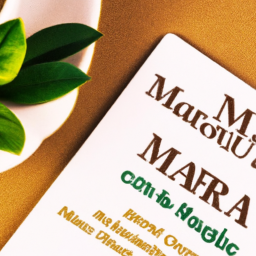Marriage is a sacred bond that brings two individuals together, promising a lifetime of love, support, and companionship. However, even the strongest of marriages can face challenges and hardships that put this sacred bond to the test. In times of distress and uncertainty, it is natural to wonder, “Who can save my marriage?” This question often arises when couples find themselves struggling to communicate effectively, overcome conflicts, or rediscover the passion that once fueled their relationship. Fortunately, seeking guidance and support from professionals who specialize in marital counseling can offer a glimmer of hope and potentially save a marriage on the brink of collapse. In this blog post, we will explore the crucial role that experts play in helping couples navigate the complexities of their relationship, providing insights, strategies, and tools to restore harmony and reignite the flame of love. Whether you are currently facing marital challenges or simply seeking knowledge to fortify your relationship, this article aims to shed light on the question, “Who can save my marriage?”
Seeking Professional Help: Understanding the Role of Marriage Counselors
Marriage is a beautiful union between two individuals, but it can also be challenging and require effort to maintain. When faced with difficulties in a marriage, seeking professional help can be a crucial step towards saving it. Marriage counselors play a vital role in guiding couples through their issues, providing them with the tools and strategies to rebuild their relationship. In this article, we will delve into the importance of seeking professional help and understanding the role of marriage counselors in saving your marriage.
The Benefits of Seeking Professional Help
1. Objective Perspective: One of the significant advantages of seeking professional help is gaining an objective perspective on your relationship. Marriage counselors are trained to be impartial and unbiased, allowing them to view your situation from an outsider’s standpoint. This perspective can help identify patterns, communication gaps, and underlying issues that may be contributing to the problems in your marriage.
2. Effective Communication: Communication breakdown is a common issue in troubled marriages. Marriage counselors are skilled in facilitating effective communication between partners. They create a safe space where both individuals can express their thoughts, feelings, and concerns without fear of judgment or interruption. Through guided conversations, couples can learn to listen actively, validate each other’s emotions, and find constructive ways to address conflicts.
3. Conflict Resolution: Conflicts are inevitable in any relationship, but how they are managed can make a significant difference. Marriage counselors are trained in conflict resolution techniques and can teach couples how to resolve disagreements in a healthy and respectful manner. They help couples identify the root causes of conflicts, explore possible solutions, and negotiate compromises that are mutually beneficial.
The Role of Marriage Counselors
1. Assessment and Diagnosis: The first step in the journey of saving your marriage with a counselor is an assessment and diagnosis of your relationship. Marriage counselors will ask questions about your history as a couple, individual backgrounds, and current challenges you are facing. This process helps them gain a comprehensive understanding of your unique situation and tailor their approach accordingly.
2. Goal Setting: After the initial assessment, marriage counselors work with couples to establish clear and realistic goals for therapy. These goals can range from improving communication and trust to resolving specific issues such as infidelity or financial disagreements. Setting goals provides a roadmap for the counseling process, allowing couples to track their progress and stay focused on their desired outcomes.
3. Providing Tools and Strategies: Marriage counselors equip couples with essential tools and strategies to navigate their marital challenges. These may include communication exercises, conflict resolution techniques, active listening skills, and problem-solving strategies. By learning and practicing these skills, couples can develop healthier patterns of interaction and strengthen their bond.
4. Facilitating Emotional Healing: In troubled marriages, emotional wounds can run deep. Marriage counselors create a safe and supportive environment where individuals can express their emotions and work towards healing. They help couples process their feelings of anger, resentment, or betrayal, and guide them towards forgiveness and rebuilding trust.
5. Guiding Reconciliation and Growth: Ultimately, the role of marriage counselors is to guide couples towards reconciliation and growth. They help couples identify and change negative patterns of behavior, promote empathy and understanding, and foster a renewed sense of love and commitment. Through ongoing therapy sessions, couples can continue to strengthen their relationship and develop the skills necessary for long-term success.
In conclusion, seeking professional help through marriage counseling can be a transformative step towards saving your marriage. Marriage counselors provide couples with an objective perspective, effective communication strategies, and conflict resolution techniques. They play a crucial role in assessing, diagnosing, and guiding couples through their challenges, while also facilitating emotional healing and growth. Remember, saving a marriage requires commitment, patience, and a willingness to actively participate in the counseling process. With the help of a skilled marriage counselor, you can embark on a journey towards a happier and healthier relationship.

Communication Techniques: Rebuilding Trust and Strengthening Your Marriage
Communication is the cornerstone of any successful marriage. It is through effective communication that couples can rebuild trust, resolve conflicts, and strengthen their bond. However, in the face of challenges, many couples struggle to communicate effectively, leading to misunderstandings and further deterioration of their relationship. In this guide, we will explore various communication techniques that can help you rebuild trust and strengthen your marriage.
1. Active Listening
Active listening is an essential skill that can transform the way you communicate with your spouse. It involves fully focusing on and understanding what your partner is saying, without interrupting or formulating a response in your mind. By practicing active listening, you demonstrate respect, empathy, and a genuine interest in your partner’s thoughts and feelings.
To actively listen, create a safe and conducive environment for open communication. Eliminate distractions, maintain eye contact, and provide verbal and non-verbal cues to show that you are fully engaged. Avoid interrupting or offering solutions immediately; instead, allow your partner to express themselves fully. Once they have finished, summarize and reflect on what they have said to ensure you have understood correctly. This technique fosters trust, as it shows your commitment to understanding your partner’s perspective.
Furthermore, active listening helps you to become aware of any underlying issues or concerns that may be affecting your marriage. By actively listening, you can identify and address these issues, leading to effective problem-solving and a stronger marital bond.
2. Non-Defensive Communication
Defensiveness is a common barrier to effective communication in marriages. When one partner feels attacked or criticized, they often respond defensively, which escalates conflicts and hinders resolution. Non-defensive communication is a technique that can help break this cycle and promote healthy dialogue.
To practice non-defensive communication, it is crucial to remain calm and composed during discussions. Instead of immediately reacting defensively, take a moment to reflect on your partner’s words and intentions. Try to understand their perspective and acknowledge their feelings, even if you disagree. Responding calmly and non-defensively allows for a more productive conversation, as it encourages your partner to express themselves honestly without fear of judgment or retaliation.
Additionally, non-defensive communication involves using “I” statements instead of “you” statements. By expressing your own thoughts and feelings using “I” statements, you take responsibility for your emotions without blaming or attacking your partner. This approach helps to foster empathy, understanding, and open dialogue, ultimately rebuilding trust and strengthening your marriage.
3. Conflict Resolution Techniques
Conflicts are inevitable in any marriage, but how they are resolved can significantly impact the overall health of the relationship. Effective conflict resolution techniques can help you navigate disagreements and reach mutually satisfactory solutions.
One technique is to practice compromise and find middle ground. Understand that both partners may have valid perspectives and try to find a solution that meets both of your needs. This requires open-mindedness, flexibility, and a willingness to let go of the need to be “right.” By compromising, you show your commitment to the relationship and prioritize its success over individual desires.
Another technique is to use “I” statements to express your concerns and needs during conflicts. Clearly communicate how the issue is affecting you personally and what you require from your partner. This approach encourages empathy and understanding, reducing defensiveness and promoting a collaborative problem-solving mindset.
Lastly, it is essential to take breaks during heated arguments. If emotions are running high, it may be beneficial to pause the discussion and allow both partners to cool down. This prevents further escalation and gives each person an opportunity to reflect on their thoughts and emotions. Once both partners have regained their composure, resume the conversation with a calmer and more constructive approach.
In conclusion, effective communication is vital for rebuilding trust and strengthening your marriage. By practicing active listening, non-defensive communication, and employing conflict resolution techniques, you can foster understanding, empathy, and mutual respect. Remember, it takes time and effort to develop these skills, but the rewards are a more harmonious and fulfilling marital relationship.

Self-Reflection and Personal Growth: Taking Responsibility for Saving Your Marriage
In times of marital crisis, it is natural to search for external solutions or someone to blame. However, the most effective way to save your marriage is to start with self-reflection and personal growth. By taking responsibility for your own actions and emotions, you can create a positive impact on your relationship. This article will guide you through the process of self-reflection and personal growth, empowering you to save your marriage.
Understanding Your Emotions
Emotions play a significant role in any relationship, and understanding your own emotions is the first step towards saving your marriage. Take time to reflect on how you feel and identify the underlying causes of your emotions. Are you feeling angry, hurt, or neglected? By acknowledging and accepting your emotions, you can communicate them more effectively to your partner.
It is crucial to express your emotions in a healthy and constructive manner. Avoid blaming your partner or becoming defensive. Instead, use “I” statements to express how you feel. For example, say, “I feel hurt when you don’t listen to me,” instead of, “You never listen to me.” This approach encourages open communication and helps your partner understand your perspective.
Furthermore, practice empathy towards your partner’s emotions. Understand that they might be going through their own struggles and try to see things from their point of view. By developing emotional intelligence and empathy, you can foster a deeper connection and strengthen your marriage.
Identifying Personal Contributions
When facing marital challenges, it is essential to reflect on your own contributions to the situation. Take an honest look at your actions, behaviors, and patterns within the relationship. Are there any negative patterns that you have fallen into? Are you communicating effectively and actively listening to your partner?
Identifying personal contributions does not mean blaming yourself entirely for the problems in your marriage. It means recognizing areas where you can improve and taking responsibility for your actions. For example, if you have been neglecting quality time with your partner, acknowledge it and commit to making positive changes.
Self-reflection also involves examining your own values, beliefs, and expectations. Are your expectations realistic? Are you bringing unresolved issues from your past into your marriage? By understanding yourself better, you can gain clarity on what you truly want from the relationship and work towards aligning your expectations with reality.
Committing to Personal Growth and Seeking Support
Personal growth is an ongoing process that requires commitment and effort. Once you have identified areas for improvement, take proactive steps towards personal growth. This may involve seeking professional help, such as couples therapy or individual counseling, to gain valuable insights and develop effective strategies.
Engage in activities that promote self-care and personal development. This can include practicing mindfulness, engaging in hobbies, reading books on relationships, or attending workshops and seminars. By investing in your personal growth, you can become a better partner and contribute positively to your marriage.
Remember, personal growth is not a one-time fix but a continuous journey. Be patient with yourself and your partner as you navigate through challenges and work towards a healthier and happier marriage. Celebrate small victories and learn from setbacks.
In conclusion, self-reflection and personal growth are powerful tools for saving your marriage. By understanding and managing your emotions, identifying personal contributions, and committing to personal growth, you can take responsibility for your relationship’s well-being. Remember, it takes two individuals willing to grow and change to save a marriage. Start with yourself, and inspire your partner to join you on this transformative journey.
Essential Points
Marriage is a sacred bond between two individuals, but it is not immune to challenges and difficulties. When a marriage starts to falter, it is natural to wonder who can save it. Seeking professional help from a marriage counselor or therapist is often the best course of action.
Marriage counselors are trained professionals who specialize in helping couples navigate through their challenges. They provide a safe and neutral environment where both partners can express their concerns and feelings openly. Through various therapeutic techniques, counselors help couples identify the root causes of their problems and develop effective communication and conflict resolution skills. They also offer guidance on rebuilding trust, reigniting intimacy, and creating a healthier, more fulfilling relationship. By working with a marriage counselor, couples can gain valuable insights, learn new strategies, and ultimately save their marriage.
Let me leave you with some FAQs:
Q1: Can someone save my marriage?
A1: Yes, there is hope for saving your marriage. Many couples have successfully overcome various challenges and rebuilt their relationships. Seeking professional help and putting in the necessary effort and commitment can significantly increase the chances of saving your marriage.
Q2: What kind of professional can help save my marriage?
A2: Marriage counselors, therapists, or relationship coaches are professionals who specialize in helping couples navigate through difficult times and improve their relationships. These professionals are trained to provide guidance, support, and tools to help you and your spouse work through the issues affecting your marriage.
Q3: How can professional help save my marriage?
A3: Professionals can provide an objective perspective on your relationship, helping you identify the underlying issues and patterns that may be causing strain. They can teach you effective communication skills, conflict resolution techniques, and strategies to rebuild trust and intimacy. With their guidance, you can gain a deeper understanding of each other and develop healthier ways of relating.
Q4: Can I save my marriage without professional help?
A4: While it’s possible to make progress on your own, seeking professional help greatly increases the likelihood of saving your marriage. Professionals bring expertise, experience, and an outside perspective that can facilitate more effective and efficient progress. They can provide the necessary tools and strategies tailored to your specific situation, helping you address deep-rooted issues and navigate complex emotions more successfully.
Q5: What are some signs that professional help may be needed to save my marriage?
A5: Some signs that indicate professional help may be beneficial include constant communication breakdowns, unresolved conflicts, lack of intimacy, infidelity, persistent feelings of resentment, or a general sense of hopelessness. If you and your spouse have been unable to make progress on your own or feel stuck in a negative cycle, seeking professional help can provide the guidance and support needed to turn things around.

About Sarah:
Sarah is a certified marriage counselor and co-founder of SaveOurVows.com. Her expertise lies in helping couples reignite the spark in their relationships and create a lasting bond built on trust and understanding. As a devoted wife and mother, Sarah draws from her personal experiences and professional training to offer valuable guidance to couples seeking to save their marriages. Her articles focus on nurturing emotional connection and fostering a supportive environment where love can thrive.
About John:
John is a relationship expert and co-founder of SaveOurVows.com. With a Master’s degree in Marriage and Family Therapy, John is passionate about helping couples navigate the challenges that come with marriage. Having experienced the highs and lows in his own relationship with Sarah, he understands the complexities of married life and believes in the power of effective communication and emotional intimacy. John’s articles offer practical tips and insights to empower couples in their journey to a stronger and more fulfilling marriage.
Together as a Team:
John and Sarah’s mission is to provide a compassionate and supportive platform for couples in need of guidance and encouragement. Through their collaborative efforts, they aim to inspire love and commitment in marriages worldwide. As a couple themselves, they embody the principles they teach, and their dedication to helping others strengthen their relationships is the driving force behind SaveOurVows.com.
Favorite Topics:
Rekindling Romance: John and Sarah believe that rekindling the romance is an essential aspect of any successful marriage. Their articles on this topic offer creative ideas and practical strategies to keep the passion alive.
Effective Communication: Communication is the foundation of a healthy relationship. John and Sarah share expert tips to improve communication between couples and resolve conflicts constructively.
Building Trust: Trust is paramount in any marriage. Through their articles, they help couples rebuild trust and create a secure and loving environment.
Join Sarah and John’s Journey:
Sarah and John invite you to join them on their journey of empowering couples to save their vows and build lasting and fulfilling marriages. Their insights and advice aim to make a positive impact on your relationship, fostering a bond that stands the test of time.






